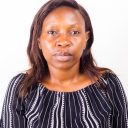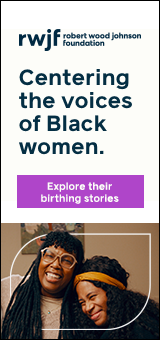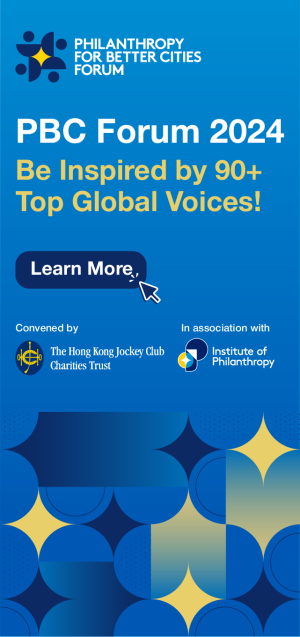In the face of a rapidly changing climate, the intersection between reproductive health and environmental sustainability has become increasingly apparent. Across the globe, communities are experiencing firsthand how climate change exacerbates challenges in accessing reproductive health services.
This is particularly true for women, who are often the first to feel the impacts of environmental disasters, food insecurity, and displacement—factors that directly threaten their reproductive rights and health.
This is especially the case in the Global South where women, alongside girls and marginalised groups, are largely dependent on natural resources for their livelihoods. They are the hardest hit by extreme weather patterns, which limit their access to food, water, shelter, and essential health services, including those that address sexual and reproductive health and rights (SRHR).
A Reliefweb analysis, based on a report by the United Nations Population Fund (UNFPA), demonstrated that heat has an adverse impact on maternal and newborn health outcomes, increasing the risk of stillbirth. A similar report by IPAS found that climate-related emergencies cause major disruptions to access to health services and life-saving commodities, including contraception.
The good news, however, is that philanthropy is stepping in to address this urgent need, channeling resources into initiatives that empower women to not only cope with these challenges but also to lead in the development of sustainable solutions.
Recent examples include Elsevier Foundation and The World Academy of Sciences (TWAS), which in December 2023 awarded seven teams grants for gender equity and climate action projects in the Global South; noting that women are disproportionately affected by climate change, yet only four percent of research in this area incorporates sex and gender considerations.
The goals of the TWAS-Elsevier Foundation Project Grants for Gender Equity and Climate Action are to improve gender equity, attend to local populations’ concerns connected to climate change and apply scientific knowledge to real-life scenarios. The seven initiatives selected for funding have as their main objectives the restoration of mangroves, sustainable land management and climate change adaptation as a means of empowering women. They will each get about US$25,000, and they are headed by female scientists from Benin, Bolivia, Ghana, Mozambique, and Zimbabwe.
Ylann Schemm, Executive Director of the Elsevier Foundation, commented: ‘What makes these grants unique is their emphasis on tangible projects which provide local science-based solutions, and their focus on women, who are bearing the brunt of climate change across the global South.
‘It is crucial that women scientists are part of the response to the biggest challenge of our time. We are extremely proud to partner with TWAS on making this vital investment in gender equality as we look to tackle climate change together.’
‘There is no denying that already, the efforts being put in by private philanthropy to empower women to not only cope with these challenges but also to lead in the development of sustainable solutions are not commendable’
Quarraisha Abdool Karim, TWAS President added: ‘These grants highlight that excluding half the world’s population in tackling complex global challenges is a luxury we can no longer afford. We are delighted that the recipients of these TWAS-Elsevier project grants profile inspiring teams of women making important contributions to closing gender gaps in science and knowledge co-creation.’
In October 2023, the Rockefeller Foundation launched a 32-month Solar Harnessed Entrepreneurs (SHE) Project in Sierra Leone with the aim of developing and expanding profitable renewable energy-enabled businesses for women through financing, capacity building, and enhanced market access.
CARE, which is implementing the project, partnered with microfinancing institutions to give businesswomen low-interest loans, and with Power Leone to provide them with solar-powered appliances such as freezers or cassava mills. The women receive training in financial literacy and business management, as well as enhanced market access to help their businesses grow.
Women Organising for Change in Agriculture and Natural Resource Management (WOCAN) received a grant from the Bill & Melinda Gates Foundation in December 2022 to design an innovative model in gender-responsive climate adaptation and resilience in Asia and Africa.
The grant provided WOCAN with 18 months of support for the planning and readiness assessment of long-term opportunity through the development of a model that can be scaled, and culminate in a detailed programme model to be presented to the BMGF as well as other funders, to Scale Impact for Gender Equality and Climate Outcomes.
‘This will provide resources to women’s organisations and enterprises, Support- Institutions (that provide technical assistance), and funding intermediaries to scale up gender-responsive climate mitigation and adaptation actions to achieve climate adaptation and women’s empowerment outcomes simultaneously within the most climate-vulnerable communities,’ said a press release by the Rockefeller Foundation.
Also in 2023, Amazon and the US Agency for International Development (USAID), along with grants manager 2X Global and Climate Gender Equity Fund (CGEF)’s other founding members, announced the first cohort of women-led organisations selected to receive grants from CGEF, each of which is focused on advancing gender-equitable climate action in Africa.
The three organisations that were selected are a women-led acceleration hub in Nigeria that is scaling new climate technologies; an accelerator in South Africa that supports female science, technology, engineering, and math (STEM) business founders; and an incubator in Kenya that focuses on women entrepreneurs working on climate-smart agriculture solutions.
In addition, since CGEF launched last November, its founding members—including USAID, Amazon, Reckitt, Visa Foundation, and The UPS Foundation—have committed a combined $20 million to the fund, with USAID announcing an additional $5 million during the COP28 climate change conference.
Women-led Solutions
Women in the Global South possess an extraordinary potential to contribute to climate change adaptation and mitigation. But because of patriarchal values, they are mostly sidelined from contributing to the search for solutions.
This is despite the fact that women tend to be more impacted by climate shocks and stresses, including those arising from extreme weather events, droughts, floods, rising sea levels, and warmer temperatures.
There is a need to continue championing and funding efforts to make women part of the solution as leaving them out when coming up with environmental solutions puts them in more vulnerable positions.
However, while governments need to upscale efforts to boost mitigation and adaptation mechanisms to ameliorate the situation, the role of private philanthropy cannot be gainsaid.
There is no denying that already, the efforts being put in by private philanthropy to empower women to not only cope with these challenges but also to lead in the development of sustainable solutions are not commendable.
However, statistics indicate that philanthropic contribution to women and girls remains low with the Global Fund for Women putting it at 1.9 percent. Clearly there is more that can be done to enhance women’s expertise and capacity to combat climate change.
Rose Ng’ang’a is a Communications and Media Specialist specialising in impactful messaging. She comments on gender and climate change issues.




Comments (0)